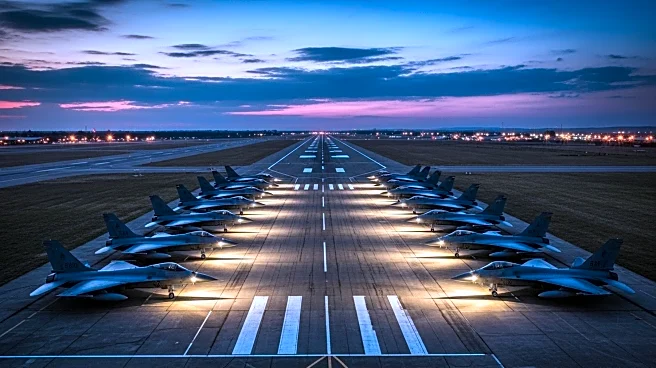What's Happening?
The U.S. is contemplating a return to Bagram Air Base in Afghanistan, a move supported by President Donald Trump. The base, once a symbol of American military power, was evacuated in 2021 during the U.S. withdrawal from Afghanistan. The strategic importance of Bagram, due to its proximity to China and a nuclear testing range, is a key factor in the consideration. The Taliban, currently in control of Afghanistan, has expressed opposition to foreign military presence but has shown willingness to negotiate.
Why It's Important?
Re-establishing a U.S. presence at Bagram could enhance American strategic capabilities in the region, particularly for counterterrorism operations against groups like the Islamic State-Khorasan. It also reflects broader geopolitical interests, including monitoring Chinese military activities. However, the move could complicate U.S.-Taliban relations and impact diplomatic efforts. The decision to return to Bagram involves weighing military advantages against potential diplomatic and ethical challenges.
What's Next?
Negotiations between the U.S. and the Taliban are likely to continue, with potential discussions on economic and political relations. The U.S. may leverage its position to gain concessions from the Taliban, such as recognition or access to frozen assets. The outcome of these negotiations could influence U.S. foreign policy and military strategy in the region, as well as international perceptions of American involvement in Afghanistan.
Beyond the Headlines
The ethical implications of recognizing the Taliban government, given its human rights record, are a significant consideration. The decision to return to Bagram could also affect U.S. relations with other regional powers and impact global perceptions of American military interventions.











